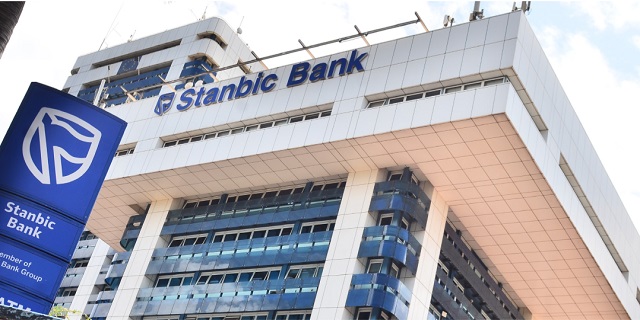
The bank is eyeing fin-tech, insurance, fund management and stock brokerage cash
Kampala, Uganda | JULIUS BUSINGE | On April 10, Stanbic Bank might have given hope to its shareholders that they will earn more money in the near future estimated to be more than Shs300bn in net profit.
The announcement came as the bank officially changed its trading name from Stanbic Bank Uganda Limited to Stanbic Uganda Holdings Limited.
This was revealed by Japheth Katto, the Bank’s Board of Directors chairman flanked by Samuel Fredrick Mwogeza, the bank’s chief financial officer and Paul Bwiso, the chief executive officer of the Uganda Securities Exchange that hosted the event.
The changes had been approved by the two regulators, Bank of Uganda and the Capital Markets Authority, a process that started last year.
The new changes had a week earlier forced the USE to voluntarily suspend trading of company shares until the entire reorganisation process is formalised and completed.
The counter was reopened on April 10, trading under the new name ‘Stanbic Uganda Holdings Limited’.
Katto said the ultimate objective of the reorganisation was to move from the then legal and operating structure where SBU was a public company listed on the USE that provided banking services directly to customers, to a group structure that comprises a holding company now listed on the USE and several subsidiaries, including the banking subsidiary.
He said the reorganisation was largely aimed at creating new business subsidiaries beyond banking to deliver several benefits that would enhance their customer value proposition, increase the returns for shareholders and deliver on their promise to shareholders.
The good thing, Katto said that already 80% of their transactions are digital which means opening up more opportunities for the fin-techs would create more jobs and related opportunities.
He also said by venturing into other non-banking activities would add more jobs into the economy, and contributes additional tax.
“We are very positive about the impact on jobs and the economy,” Katto said.
The new move now enables the institution to undertake non-banking financial services including stock brokerage services, insurance brokerage and fund management.
He said that the bank already has a significant number of customers, good contacts, reliable data and information which is critical for offering a one stop service in the market.
“We are not diluting the rest of the bank,” Katto said. “We are taking advantage of what we have now to be able to give a better proposition to the shareholders by adding other lines of business,” he added.
He said it is up to the market, shareholders to see that actually there is more that is coming for them to make informed decisions.
“These new lines of business are well structured and will be well governed,” he said.
Paul Bwiso, [the USE CEO] welcomed the new holding company at the Nakawa based bourse and insisted it would bring greater shareholder value to the investors.
In terms of value added to the USE, Bwiso said that he would love to see the new company earn more revenue and translate it into more trading and turnover at the stock exchange. This would also come along with new levies for the market.
Bwiso used the platform to explain why the market (with 16 trading companies) is dormant.
“The structure of our market is dominated by institutional investors. These large Funds buy into companies for the long term (7-10 years)…and they do not easily sell shares.That mops up liquidity that would otherwise be available for trade.”
Going ahead, he said that for the market to improve performance it needs more issuance or more listing which should be skewed to retail and less to institutions.
Samuel Fredrick Mwogeza, the bank’s CFO said they will have all their branches operating within “our holding company which will allow us to optimise the space to use at our branches and use some of it [space] for other activities.”
He said this is a very exciting time and that Stanbic has a very strong brand in the market.
Mwogeza said that although the share price of the company has remained flat (Shs30) for many years at the bourse, the business remains profitable and has recorded a dividend payout ratio of between 40-50% in the last five years.
The management has proposed a dividend of Shs97.5bn for the year 2018 following a 12% profit before tax increase to Shs297 billion in 2018.
It recorded Shs215billion as net profit for the year 2018 compared to Shs200bn a year before. The bank increased its earnings from its core business of loans (net interest income) from Shs352bn in 2017 to Shs370bn in 2018.
Time will tell whether the new lines of business created under the new holding company will cause a substantial impact on the bank’s profitability trend.
****
 The Independent Uganda: You get the Truth we Pay the Price
The Independent Uganda: You get the Truth we Pay the Price


